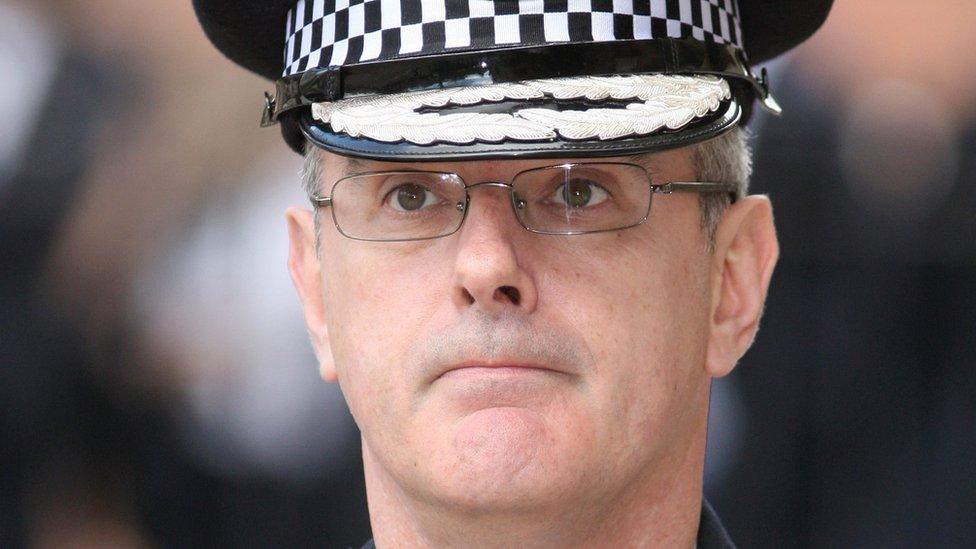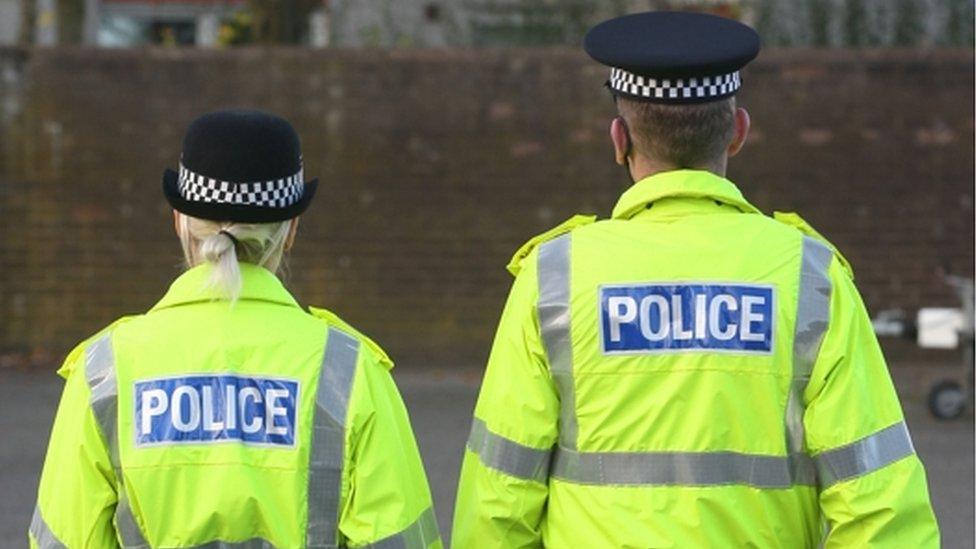Some drug users may receive a warning instead of prosecution
- Published

Some cannabis users caught by police may not be prosecuted and will receive an on-the-spot recorded warning instead.
Police Scotland will introduce the system in January to deal with low-level crimes.
At the moment, such crimes are normally reported by police to prosecutors and do not end up in court.
The majority of those caught with cannabis, and perpetrators of serious crime, would be dealt with as before.
The recorded police warning is a revision of the formal adult warning scheme and would be issued by individual officers.
Officers will determine if a warning is appropriate, or if another course of action such as a fixed-penalty notice should be issued.
Ch Supt Brian McInulty said the idea behind the scheme was to speed up the justice process by dealing with crimes that were unlikely to go to court.
But one campaigner, Prof Neil McKeganey, founder of the Centre for Drug Misuse, described the announcement as a "massive white flag to Scotland's drug problem".
Police Scotland has not revealed exactly what types of crime would be dealt with by recorded warnings.
Officers will use guidelines provided by the Lord Advocate, which are not available to the public, and make a judgement on the circumstances of each case.
A spokesman confirmed the warnings would not be used for the possession of cocaine or heroin, and the majority of people caught with cannabis would continue to be reported to the procurator fiscal.
Last year, police sent 210,000 reports to the Crown Office, with the majority of them relating to low level level offences.
It is anticipated "a significant number" of such reports could now be dealt with appropriately using the revised recorded police warning system.
The Crown Office said the scheme would enable the procurator fiscal and courts to focus on more serious crimes while giving police the range of powers they need to respond quickly and appropriately to very minor offences.
Anyone over the age of 16 could be the subject of a recorded police warning which the change is introduced from 11 January
There will be an appeals process built in to the system, a spokesman from Police Scotland added.
'More effective and proportionate'
Ch Supt McInulty, divisional commander for Police Scotland's criminal justice division, said: "Recorded police warnings will provide a consistent, swifter, more effective and proportionate way of dealing with low-level offences earlier in the process than the current processes allow for.
"Many incidents are capable of quick resolution without the need to submit a formal report to the procurator fiscal. Officers will be able to deal with incidents and offenders there and then, which is beneficial to everyone."
He added: "The disposal options now open to them start with a verbal warning, a recorded police warning, a fixed penalty notice and ultimately officers may still submit a formal standard prosecution report to the Crown Office and procurator fiscal service, depending on the circumstances and nature of each incident or crime."
A Crown Office spokesman said: "Recorded police warnings are not new and are an update to the previous system of a formal adult warning. They are issued by the police at the time of the offence.
"This system, and the updated guidelines, gives police the discretion to issue a warning for offences which they consider to be very minor in nature."
A Scottish government spokesperson said: "Recorded police warnings will provide a proportionate, formal way of dealing with very minor offences which commonly do not result in court action and will still appear on records for two years.
"The types of crime covered by the scheme are a matter for the Lord Advocate as part of his independent role as head of the system of prosecution."
- Published2 December 2015

- Published6 November 2015
